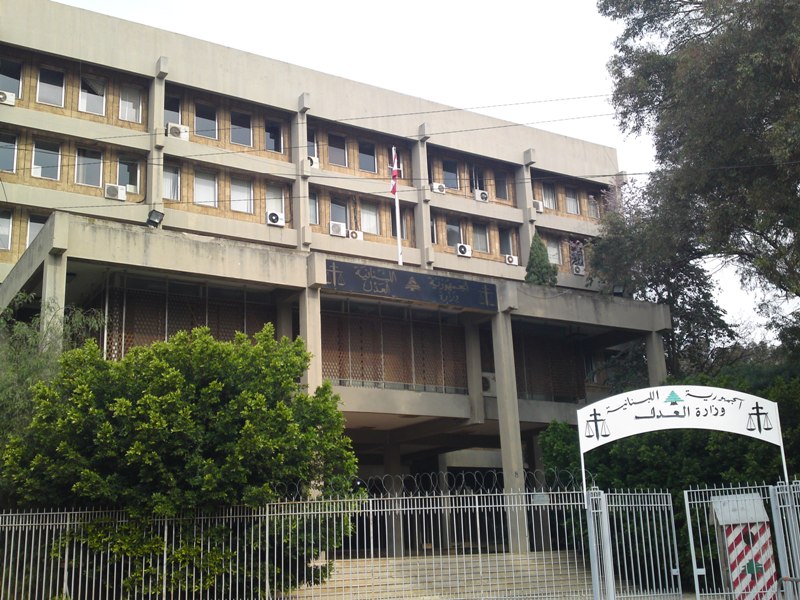Joseph A. Kechichian Senior Writer,

Beirut: In a country where a member of parliament—as well as a former minister—assaults a Ministry of Justice employee because he demands immediate attention, the very definition of corruption takes on an entirely different meaning, even if the vast majority of Lebanese crave law and order.
Whether a direct result of the long civil war that crippled the country’s institutions, or the effects of the three-decades long Syrian occupation, or even because of the overall lawlessness encouraged by ongoing militia activities, a certain mentality towards justice emerged that can only be described as being selective. Although Gargantuan efforts were deployed to maintain a semblance of impartiality, rendering justice in Lebanon was politicized, mimicking every other enterprise.
On the surface, Ministry of Justice statistics affirmed that a total of 139,119 new cases were added to the 390,808 pending civil and criminal files between October 1, 2006 and 30 September 2007, the last year for which such data was available. During the same period, 122,704 cases were adjudicated—an 88.2% rate of efficiency on incoming files, although 407,223 files were left pending in the system. Such a high rate illustrated the attention of judges and other employees even if many resolutions were the result of corrupt practices. According to Khalil Khairallah, a lawyer and professor of law at the Lebanese University who was recently quoted in local papers, a member of the higher judicial council confirmed “that most judges were corrupt.”
Irrespective of such descriptions, and as a recent conference by the International Center for Transitional Justice recommended, strict measures were necessary to deal with the consequences that civil war related crimes and traumas created. Of course, Beirut passed an amnesty law to deal with some of these concerns, though critics insisted that denial was not justice and that society needed to openly address existing tendencies for violent behavior if Lebanon is to ever turn the page of its sad 1975-1990 chapter.
Naturally, it fell on the judiciary to play the crucial role in confronting the legacy of political violence, though few believed that anything concrete can be accomplished as long as officials continued to exert political pressure on the country’s institutions.
Nowhere was this more evident than the pressure imposed on judges entrusted with terrorism files that follow arrests made after each bombing. Rather than go through civil courts, however, Beirut conveniently turns to the military system, which is composed of a military court of cassation and a permanent military court. It does so because Lebanese officials no longer rely on civilian courts, composed of the courts of first instance, appeal, and cassation, for purely political reasons and where judges are allocated posts based on their religious affiliations. Regrettably, serious offenses are automatically turned over to military courts on the assumption that these have a specialized criminal jurisdiction restricted to arms and ammunitions, even if the overwhelming number of suspected criminals are civilians.
A few days ago, the sitting Minister of Justice Ashraf Rifi raised serious questions over the Military Tribunal’s impartiality, and even called for the court’s writ to be limited to try accused men and women in uniform. “We want to stop trying civilians in the military court,” Rifi was quoted in the pro-March 14 al-Liwa’ daily, arguing that military officers “are not [law] specialists, and there are doubts over the fairness of the [court’s] verdicts.”
Rifi’s calls reflected tensions among leading Sunni officials who accused the military court of bias. In fact, many wondered why prosecutors focused more or less exclusively on alleged crimes in areas like Sidon and Tripoli, while non-Sunnis received political cover?
Inasmuch as recent trends highlighted excessive zeal that concentrated on Islamists, whether those involved in the 2007 Nahr al-Barid conflict with the Lebanese Army or the more recent assaults between Sunni and Shiite communities in Tripoli, the results were all too evident. Dozens, perhaps hundreds of individuals were arrested and charged, without any appearing in a court of law to adjudicate their cases. The affable military prosecutor, Saqr Saqr, made a name for himself by indicting hundreds of individuals following his myriad investigations though little of his work made it into a court of law. He even indicted five suspects in August 2013—the head of the Islamic Unification Movement Shaikh Hashim Minkara, his assistant Shaikh Ahmad al-Gharib and informer Mustafa Houri—after he charged them with forming a terrorist cell to plant explosive devices in front of two Tripoli mosques. Nothing else was heard about them since mid-2013.
To be sure, the wheels of justice moved slowly, although indicting twenty-one individuals earlier this year, including Alawite leader of the pro-Assad Arab Democratic Party, former deputy Ali Eid—who is accused of helping one or more individuals linked to various bombings flee Lebanon—was meaningless unless trials occurred, the innocent freed and the guilty punished. Many Lebanese were anxiously waiting to see when Michel Samaha, a former minister and a close ally of the Syrian Ba‘ath regime who reportedly confessed to helping plan a series of bomb attacks against Sunni targets at the behest of Damascus, would actually be tried. He was arrested on August 9, 2012, with no news as to when he would appear in front of a judge.
Minister Rifi faced a conundrum—how to try genuine extremists irrespective of their religious affiliations—because his capabilities were limited. Known for his good intentions, Riffi faced an even greater challenge, namely how to muzzle political corruption that would allow for the gradual restoration of legal impartiality.



